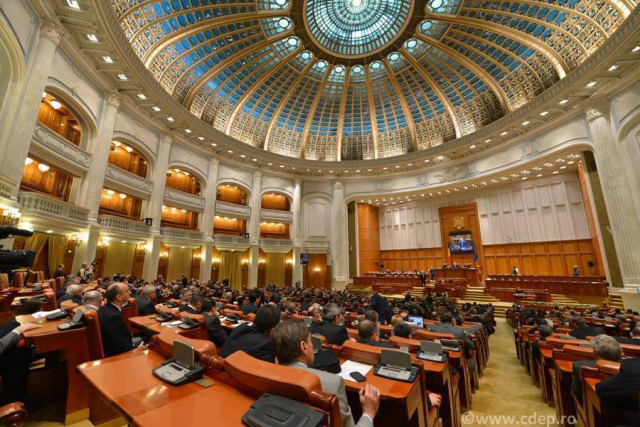Deputies review special pensions bill
The ruling coalition amended the draft law on special pensions and submitted it for review by the Chamber of Deputies

Ştefan Stoica, 30.05.2023, 13:50
The Chamber of Deputies is currently working on a draft law to reform the pension system used primarily for the magistrate corps and for army and interior ministry personnel, and which is not based on contributions to pension funds during the employment, but on other, special criteria.
This reform is a benchmark in the National Recovery and Resilience Plan. As long as the issue was not linked to financial considerations, Romanian politicians were reluctant to tackling this delicate topic, with the exception of Save Romania Union, in opposition, which has repeatedly lobbied for scrapping the special pensions.
Before reaching the Chamber, the bill on the special pensions saw amendments from the ruling coalition parties-the Social Democratic Party, the National Liberal Party and the Democratic Union of Ethnic Hungarians in Romania.
According to their authors, these amendments were designed to eliminate abuse and inequity, and the pension contribution principle will be, from now on, the primary factor in the entire public pension system. According to the new amendments, exemptions will be eliminated with respect to the standard retirement age, so that from now on diplomats and auxiliary staff in courts will also retire at the age of 65. The same principle will be applied gradually, until 2035, for military personnel as well.
Also, until January 2034, the minimum relevant length of service requirement will be increased to 25 years for several categories of employees, including diplomats, Parliament clerks, and Court of Accounts staff.
Under another amendment, certain categories of employees who previously had the same rights and obligations as magistrates or diplomatic staff will no longer benefit from special pensions.
The calculation basis for special pensions is also being adjusted to the one used in the public system. Whereas so far special pension benefits were calculated based on the revenues during the last 12 months in office, from now on this period will be gradually raised to 300 months. No special pension will be higher than the salary received while in office.
Also, a 30% tax rate will be levied on the special pension amount in excess of the current national gross average salary and in excess of the contribution principle.
Another amendment cancels a mechanism used so far, under which magistrate pensions were raised proportionately with the increase of gross monthly allowances paid to active judges and prosecutors.
“The retirement benefits paid to each citizen must reflect the importance of their lifes work and their contribution to the public system,” PM Nicolae Ciucă said. He also added that with the Pension Law and the Salary Law, Romania will have completed the reform package stipulated for this year in the National Recovery and Resilience Plan, thus ensuring sustainability and equity in the public salary and pension sector.
Quite predictably, the Higher Council of Magistrates has criticised the draft law on special pensions, warning that a sudden increase of the retirement age for judges and prosecutors might force over 1,500 magistrates out of the system. (AMP)






























